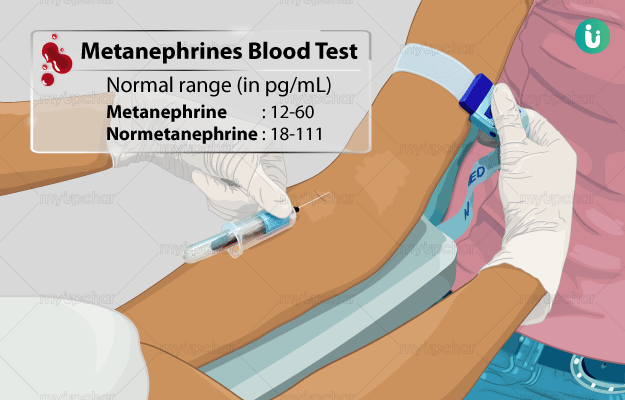What is Metanephrines Blood test?
Metanephrine blood test is also known as a plasma free metanephrines test. It determines the levels of metanephrine and normetanephrine - breakdown products of adrenaline and noradrenaline (catecholamines) - in your blood.
Adrenaline and noradrenaline are hormones produced by the adrenal glands. Adrenal glands are small triangle-shaped glands present on the top of the kidneys. They regulate blood pressure and metabolism. Adrenal glands are also essential for the body’s response to external stress and stimuli.
Some amount of adrenal hormones is normally present in blood; however, if you have an adrenal tumour, your body will start producing excessive catecholamines. It may cause high blood pressure or severe headaches and increase your chances of getting a stroke or heart disease in the future. However, since adrenal hormones are rapidly broken down, their levels can be assessed by checking their breakdown products, in this case - metanephrine and normetanephrine.
So, a metanephrine blood test is done to assess if you have an adrenal gland tumour such as pheochromocytoma or paraganglioma. Nonetheless, low levels of metanephrine may be observed in individuals with type 1 diabetes.






























